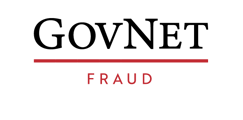In the ongoing battle against fraud within government agencies, the role of credit reporting cannot be overstated. With its ability to provide valuable insights into individuals' financial histories, credit reporting plays a crucial part in enhancing anti-fraud measures and safeguarding public funds. This blog post delves into the significance of credit reporting in government efforts to combat fraud and uphold integrity in public finance.
At the heart of effective fraud prevention lies the ability to identify potential risks and vulnerabilities before they escalate. Credit reporting serves as a powerful tool in this regard, offering comprehensive information on individuals' financial behaviour and creditworthiness. By analysing this data, government agencies can uncover patterns and anomalies that may indicate fraudulent activity, enabling them to take proactive steps to mitigate risks and protect public resources.
One of the key advantages of credit reporting is its ability to provide a holistic view of an individual's financial history. This includes details such as credit accounts, payment history, and outstanding debts, which can offer valuable insights into their financial health and behaviour. By leveraging this information, government agencies can assess the likelihood of individuals engaging in fraudulent activities, allowing them to tailor their anti-fraud measures accordingly.
Moreover, credit reporting enables government agencies to detect fraudulent behaviour across a wide range of transactions and activities. Whether it's fraudulent loan applications, identity theft, or financial irregularities, credit reporting can help flag suspicious behaviour and alert authorities to potential risks. This proactive approach not only helps prevent fraud from occurring but also minimises the impact on public finances and taxpayers.
In addition to detecting fraud, credit reporting also plays a crucial role in investigating and prosecuting fraudulent activities. The detailed information provided in credit reports can serve as valuable evidence in legal proceedings, helping authorities build strong cases against fraudsters and secure convictions. This not only acts as a deterrent to potential offenders but also ensures that justice is served and public trust in government institutions is upheld.
Furthermore, credit reporting promotes transparency and accountability within government agencies by providing greater visibility into financial transactions and activities. By regularly monitoring credit reports and conducting thorough checks, government agencies can demonstrate their commitment to integrity and responsible stewardship of public funds. This, in turn, fosters public confidence in government institutions and strengthens the overall governance framework.
However, it's essential to recognise that the use of credit reporting in government anti-fraud measures also raises important ethical and privacy considerations. Government agencies must ensure that they adhere to strict data protection regulations and guidelines when accessing and utilising individuals' credit information. Safeguards should be put in place to prevent misuse or unauthorised access to sensitive financial data, thereby preserving individuals' privacy rights and maintaining public trust.
In conclusion, credit reporting plays a vital role in government efforts to combat fraud and uphold integrity in public finance. By providing valuable insights into individuals' financial histories, credit reporting enables government agencies to identify, prevent, and prosecute fraudulent activities effectively. However, it's essential to strike a balance between leveraging credit reporting for fraud prevention and respecting individuals' privacy rights. With the right safeguards in place, credit reporting can continue to be a valuable tool in the fight against fraud, ensuring the responsible management of public funds and the maintenance of public trust in government institutions.

Nicole Lummis
After a career in Project Management, I realised how important it was for me to pursue a career with a more creative career path. I have a passion for creating engaging digital content whether through written content or the use of image, graphics or videos.




